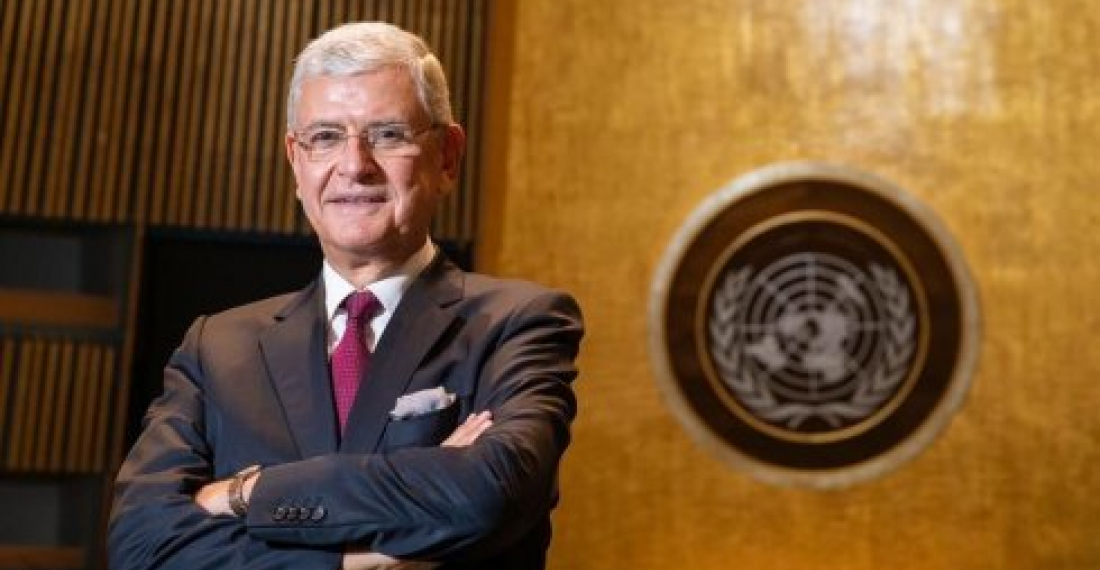Volkan Bozkır, elected as the chairperson of the United Nations General Assembly, has taken over the office at a ceremony held at the U.N. Headquarters in New York on Tuesday (15 September).
It is the first time a Turk is the chairperson of the UN General Assembly, which brings together representatives of 193 countries of the world.
Bozkır was earlier this year elected with the support of 178 countries, and will be serving his term of office until September 2021.
One of the prominent roles of the chairperson of the U.N. General Assembly is to direct the sessions and regulate the functioning of the assembly.
The General Assembly determines and controls the budget of the U.N. every year.
This year, Bozkır will lead and convene the annual forum in some virtual form, which will be for the first time in the U.N.'s 75-year history, due to the pandemic.
World leaders usually are accompanied by large delegations as they convene in New York for the annual meetings, a rare opportunity to rub shoulders with fellow leaders from nations worldwide.
Bozkır was elected to the Turkish Parliament in 2011 following nearly 40 years in foreign service that included posts in Germany, Iraq, New York and Romania.
He has also served as Turkey's chief negotiator and minister of European affairs.
source: commonspace.eu with Hurriyet Daily News (Istanbul)
photo: Volkan Bozkir (archive picture)






